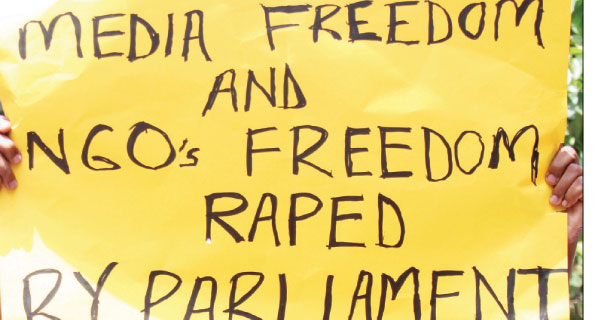×
The Standard e-Paper
Join Thousands Daily
 |
| Civil society members demonstrate outside Parliament yesterday against Public Benefits Organisation (Amendment Bill) and Kenya Information Communications (Amendment) Bill, 2013, which was passed by MPs recently. They said the laws will stifle NGOs and media. [PHOTO: MBUGUA KIBERA/STANDARD] |
By ALLY JAMAH
Stakeholders in the media industry have recommended at least 12 amendments to the controversial Media Council Bill that had sparked outcry from Kenyans and the media fraternity.